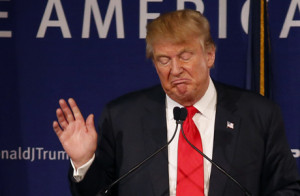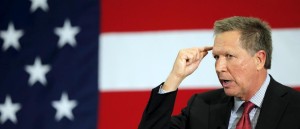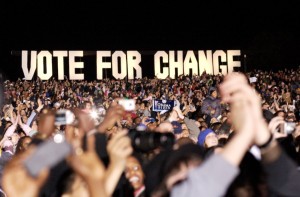I re-read the New York Times editorial endorsements this morning regarding the Republican and Democratic party presidential primaries.
The Times is backing Democrat Hillary Rodham Clinton (no surprise there) and Republican John Kasich. The Clinton nod is full of kudos for the former U.S. senator from New York; the Kasich endorsement contains a lot of, well, he’s the best of a bad bunch.
The paper’s tandem endorsements brought to mind a policy I used to follow back in the day, before I got “reorganized” out of my 36-year print journalism career in the summer of 2012.
It was that we didn’t make endorsements — which we preferred to call “recommendations” — in contested two-party primaries.
Why not?
Well, for starters, I always was a bit uncomfortable recommending candidates running for a partisan position. We did it for many election cycles here in Amarillo and in Beaumont before that. Then it dawned on me that it was best left to each major party to manage the selection process. The media need not get involved in what essentially was a partisan effort.
We would make recommendations, of course, for those single-party primary contests. In Amarillo, that usually meant the Republicans would have a contested primary, but there wouldn’t be any Democrats on the ballot for a particular office.
In those cases, the primary becomes tantamount to election. So, we’d state our case — knowing full well that whatever we said would mean diddly squat in the minds of most voters, whose minds were made up already.
I have no clue what my former paper here in Amarillo is going to do with this primary election. The Texas primary occurs on March 1 and it’s a good bet there’ll be plenty of Republicans still in the hunt for the GOP presidential nomination, not to mention at least two Democrats seeking their party’s nod for the presidency.
Nor will I offer an opinion of what the newspaper’s editorialist should do.
There no doubt will be push back from those who (a) demand the paper make endorsements in the primary, as it is their duty and (b) those who believe newspaper endorsements no longer are relevant in the current political climate.
Indeed, the Internet has taken away much of people’s reliance on what newspaper editorial boards think anyway.
Good luck, media moguls, as you ponder these things.









